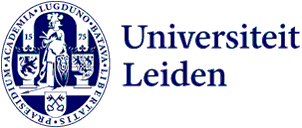
Students of Russian Studies use language skills to help Ukrainian refugees
What started as a call for help in a Facebook group turned into a permanent group of students from the Bachelor's in Russian Studies and the Master's in Russian and Eurasian Studies who regularly help the Ukrainian refugees. They act as the link between the refugees and aid workers at various reception centres. Master’s students Alexander Hoogerhuis and Berend de Haas tell us about how they are helping.
‘I joined up as soon as I saw the message in our study programme’s Facebook group,’ Berend says. ‘It’ is an opportunity to make a real difference with an uncommon skill. It would be a shame if I passed up on it.’ Alexander is also happy to make a difference. ‘It feels good that I can help people feel at home. Being able to talk in your first language instils a sense of security and clarity.’
Acting as a link
In the first few weeks, the students mainly assisted aid workers in receiving the refugees at the reception centres. All refugees had to be registered at the relevant municipality as well as the Red Cross. ‘A large proportion of the refugees speak little to no English,’ Berend explains. ‘Without any translators, it would be extremely difficult to communicate or identify basic needs, such as medical issues.’
‘You have to act as a link between the Ukrainians and the Dutch,’ Alexanders adds. ‘But you’re also there to brighten their days a little. People come over for a chat or to play games together.’
More impactful
Alexander and Berend are grateful for the work they do, although it is not always easy. ‘Now we are more directly involved, it’s suddenly a lot more impactful. I followed the events on the news, of course, but it still felt very distant from me. Now we talk to people who have been personally affected. Some of them come from cities that have been bombed and destroyed, and they can even show us pictures of the wreckage,’ says Berend. ‘Every so often I have to remind myself that it’s okay to be upset, even if I haven’t experienced it myself. When something difficult really gets to you, you don’t have to push it away.’
Even the beautiful moments can have their difficulties. ‘The best day I have had so far was when I went with a 12-year-old girl to the ice rink. She is a figure skater who competes at a high level back in Ukraine,’ Alexander tells us. ‘It was a very emotional moment, because her mother saw her on the ice for the first time in a month and started sobbing. Figure skating should be a normal activity for them, but that was not the case anymore.’
Resilient
But the students want to show that there is also a more positive side to this sad picture. ‘I get the impression that the whole of the Netherlands thinks the Ukrainian refugees are helpless. But if you actually talk to them, you’ll find that they are pragmatic people with mature issues who are simply trying to make the best of the situation,’ says Berend. Alexander agrees. ‘They are showing a lot of resilience and have a real desire to get on with their lives.’
More interpreters needed
The students also see that Ukrainians can count on support from the Netherlands. ‘The masses of clothes and toys that have been collected are impressive,’ Alexander says. ‘But there is still a lack of interpreters. We have a sizable group of interpreters, but not everyone is always available.’ This is why both students want to encourage anyone who speaks Russian or Ukrainian and has a few hours a week to spare to work as interpreters too. ‘You don’t need to be fluent to help,’ Alexander says. ‘My Russian was also quite rusty, but you soon pick it up again and people really don’t mind if you make a few mistakes. Even if you are only available for two hours a week, that’s okay. Just sign up!’
Foto: UN Women/Aurel Obreja
Do you speak Russian and/or Ukrainian and would you like to help as an interpreter? Then register with VluchtelingenWerk.
